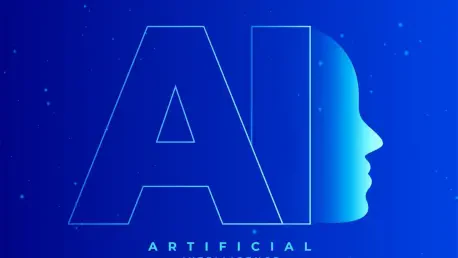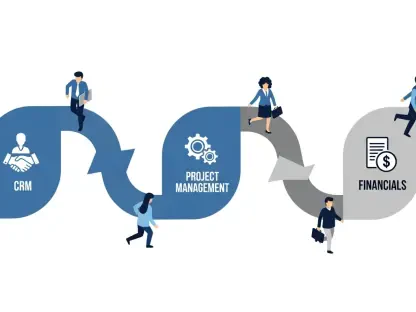The open-sourcing of AWS’s Strands Agents SDK has emerged as a pivotal moment in the landscape of AI development, potentially catalyzing a significant transformation in how developers approach creating intelligent agents. Designed to simplify the intricate processes involved in AI agent development, this software development kit adopts a model-driven approach that abstracts complexities and streamlines the orchestration and deployment of intelligent agents. As AI continues to evolve and permeate a variety of domains, the ability to develop autonomous tools capable of planning, reasoning, and interaction is increasingly essential. AWS’s decision to open-source this tool not only democratizes access to its robust functionalities but also encourages innovation by allowing developers from diverse fields to craft AI solutions suited to their specific needs.
This SDK is structured around three foundational components: a model, a set of tools, and a prompt that collectively empower the AI agent to perform a myriad of tasks ranging from answering complex queries to orchestrating multifaceted workflows. The versatility of the Strands Agents SDK is exemplified through its support for models from a wide array of providers, including Amazon Bedrock, Anthropic, and Meta’s Llama, alongside interfaces like LiteLLM. By facilitating the definition of custom model providers and promoting local model development using platforms such as Ollama, the SDK enhances adaptability, enabling seamless integration with unique developer environments and specific application requirements. Its sophisticated yet accessible design supports efforts to broaden AI capabilities, fostering an ecosystem where intelligent tools can be developed and deployed with unprecedented flexibility.
Simplifying AI Development for Broader Accessibility
At the core of Strands Agents SDK’s transformative potential is its capacity to make AI development more accessible and adaptable. By abstracting the technical intricacies traditionally associated with AI development, this SDK empowers developers to innovate without being encumbered by the steep learning curves that often deter progress in this field. The model-driven approach fundamentally changes how AI agents are constructed and interacted with, rendering them more responsive and dynamic. Developers are equipped to easily integrate models and tools that can effectively execute complex tasks by harnessing this model-driven strategy.
The SDK’s tools embody external capabilities that the model can invoke, expanding the functional horizon of the AI agent. The inclusion of over 20 prebuilt tools allows for immediate deployment of essential functions, and the invitation to register Python functions with the @tool decorator opens countless possibilities for personalization and specialization. This provision, coupled with the potential integration of thousands of Model Context Protocol (MCP) servers, underscores the utility and versatility designed into the Strands SDK. By lowering barriers, AWS enables developers from various sectors to leverage these tools to build bespoke AI agents faster than ever before, regardless of their prior experience with AI technologies.
Innovation Through Interaction and Extensibility
Crucial to the Strands Agents SDK’s architecture is the Agentic Loop, a continuous process where agents iterate through interaction with the model and tools to achieve the intended tasks. This cyclic process allows agents to dynamically engage in a sequence of actions, invoking large language models with the current context to produce responses, plan steps, evaluate prior interactions, or activate specific tools. These capabilities are pivotal in parsing real-world data and demands, fostering an AI environment more cognizant and capable.
The SDK’s focus on extensibility further elevates its capabilities, with advanced tools such as the Retrieve Tool facilitating integration with Amazon Bedrock Knowledge Bases for semantic search. This level of integration enriches the agent’s ability to analyze and reason, promoting a more sophisticated level of functionality. Multi-agent tools, including workflow and graph tools, allow subagents to handle complex tasks simultaneously, increasing efficiency and effectiveness. Looking forward, support for the Agent2Agent (A2A) protocol promises to enhance interoperability in multi-agent collaborations, enabling more complex and nuanced operational setups capable of addressing advanced challenges in AI development.
Integrated Deployment and Enhanced Diagnostics
Deployment of Strands Agents SDK is marked by versatility, evident from its wide-ranging compatibility with various environments, including AWS Lambda and Fargate. This flexibility ensures that developers can deploy AI agents across platforms tailored to their operational needs, facilitating the streamlined integration of these agents into existing ecosystems. For production-grade systems, where reliability and efficiency are paramount, the SDK’s integration with OpenTelemetry (OTEL) provides advanced observability, furnishing developers with comprehensive diagnostics. This capability is essential in ensuring that the deployed agents function optimally, enabling timely troubleshooting and efficient performance monitoring.
The inclusion of Strands in internal AWS teams, such as Amazon Q Developer and AWS Glue, illustrates its applicability and robustness within diverse operational contexts. Such widespread integration reflects the SDK’s potential to serve as a foundational tool in future AI deployments, providing scalable solutions that can accommodate varied industry demands. This deployment versatility ensures that the SDK is a valuable asset not only for developers seeking to leverage cutting-edge AI tools but also for organizations requiring reliable deployment mechanisms at scale.
Paving the Path for Future AI Innovations
The unveiling of AWS’s Strands Agents SDK as an open-source tool is a monumental shift in AI development, reshaping how developers create intelligent agents. This SDK is crafted to simplify the complex elements of AI agent development by implementing a model-driven method that abstracts complexities and refines the setup and execution of intelligent agents. In an era where AI continues to expand across numerous sectors, the ability to develop autonomous agents skilled in planning, reasoning, and engaging becomes crucial. AWS’s choice to open-source this tool democratizes access, sparking innovation by allowing developers from various fields to design AI solutions tailored to their needs.
The SDK is structured with three core elements: a model, a suite of tools, and a prompt, which together enable AI agents to perform tasks from complex query answering to managing intricate workflows. Its flexibility is highlighted by the support for models from diverse suppliers like Amazon Bedrock, Anthropic, and Meta’s Llama. It even facilitates custom model definition and local development with platforms such as Ollama, enhancing integration with developers’ environments and applications.









